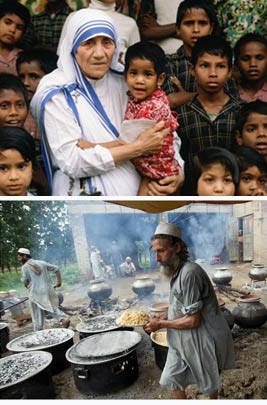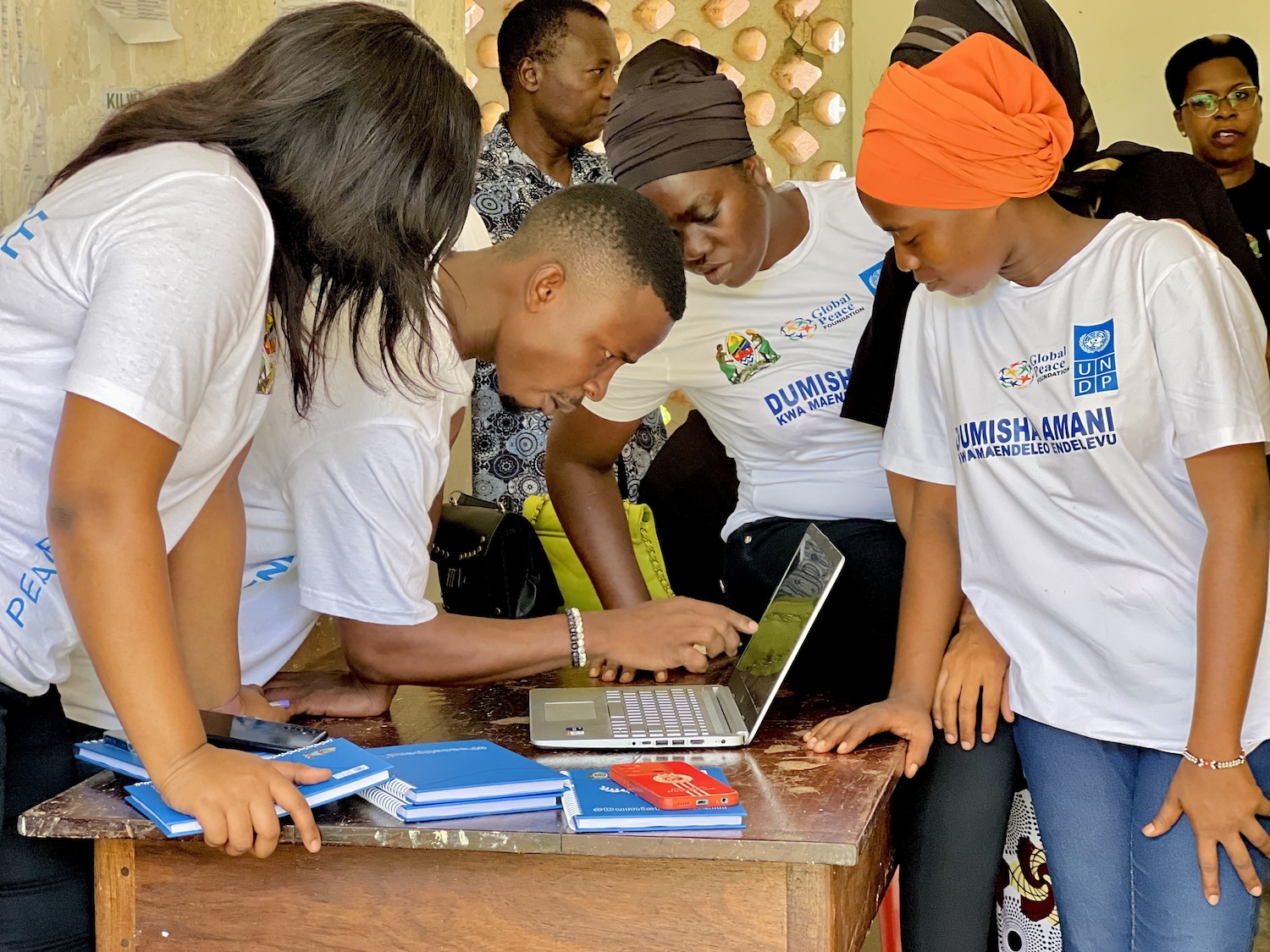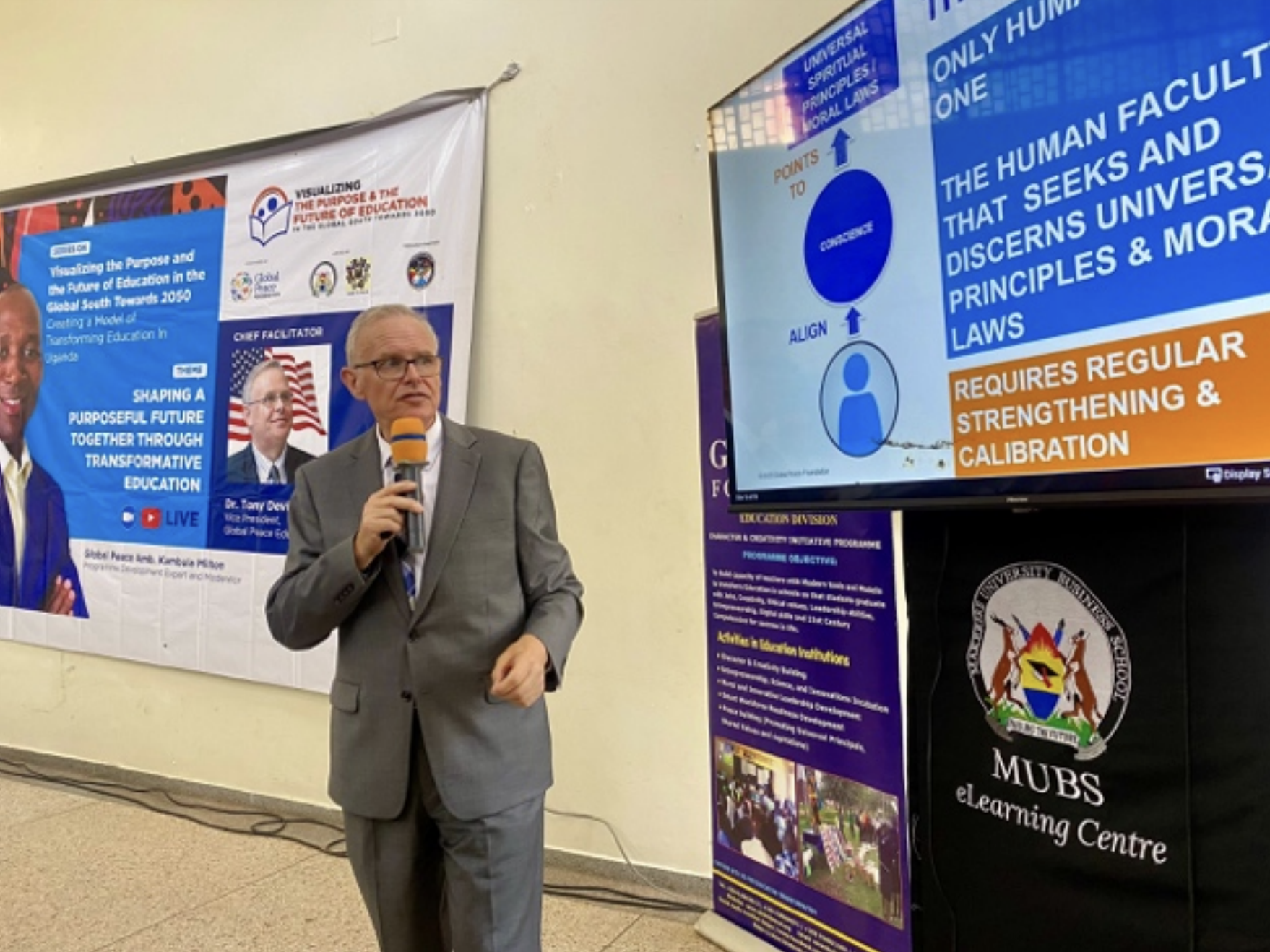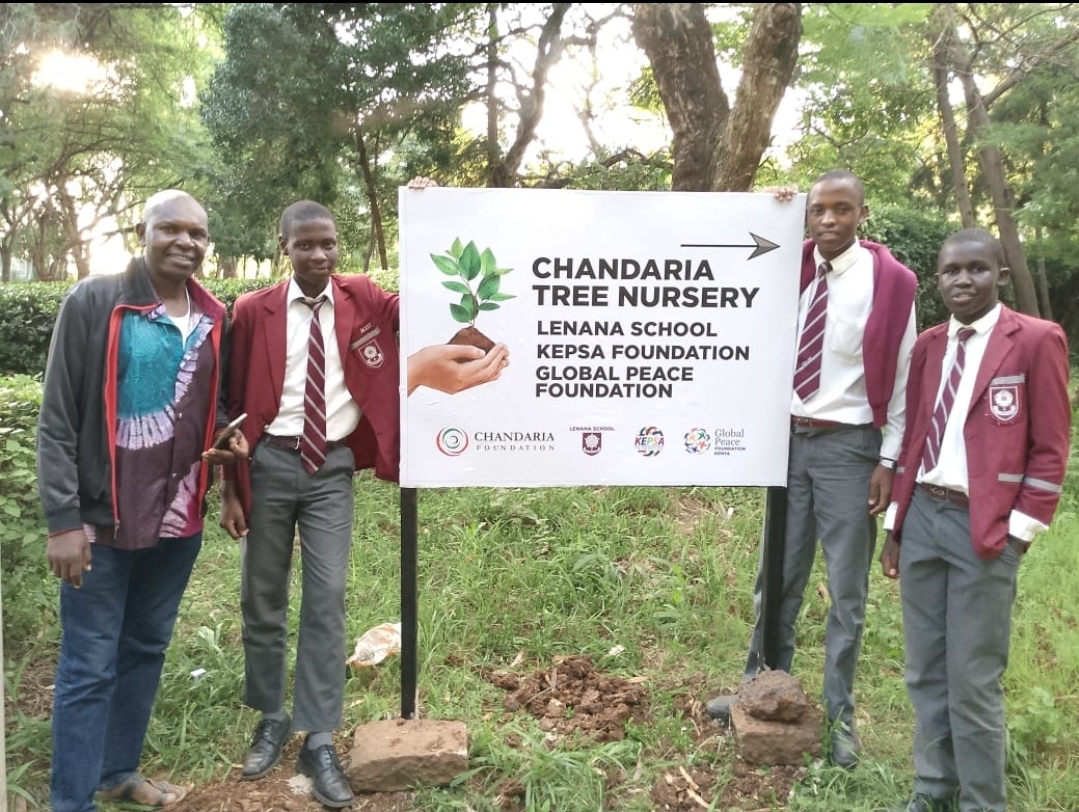
Dr. Slamet Yusuf Effendi, Vice Chairman of Nahdlatul Ulama (NU), the largest Muslim organization in the world with some 50 million members, addresses the Global Peace Convention in Nairobi, Kenya. Global Peace Convention is an annual meeting of the Global Peace Convention, founded by Dr. Hyun Jin Moon.
Religion is often associated with the fault lines of conflict in the contemporary world. But for leading scholars and religious educators from Europe, Africa, Asia, and the United States, faith leaders have an essential role to play in crossing these fault lines, speaking to conscience in the public square, and affirming our common humanity as the highest expression of our identity.
In ground-breaking exchanges at the Global Peace Convention in Nairobi, Kenya, in November 2010, Christian and Islamic leaders underscored the pivotal importance of faith as both a motive and a means to resolve conflict and advance sustainable development and peace. The Global Peace Convention is the annual meeting of the Global Peace Foundation established in 2009 by Dr. Hyun Jin Moon.
The Convention organized two sessions, “Forging Social Cohesion: Central Role of Faith Leaders,” and “The Role of the Faith Community in Social Development,” that explored differing perspectives of religious leaders who nevertheless shared the fundamental conviction that our bonds as human beings transcend boundaries of religious belief.
The Reverend Joseph John Hayab, the CEO of the Christian Awareness Initiative of Nigeria, was a leading voice for moderation and dialogue during the crisis in Jos in the Plateau State of central Nigeria. A nation of 150 million people, Nigeria is almost evenly split between Muslims in the north and Christians in the south. Clashes in the region between Christians and Muslims in 2010 left some 700 dead.
“Africans, whether traditional, Muslim or Christian, have a passion in our faith demonstrated in all of our being that sometimes exceeds that found in other regions of the world,” Rev. Hayab told the Convention delegates. “But we have failed to utilize religion as has been done in other parts of the world to bring about development and integration of our peoples.
“Interfaith is not for the benefit of Islam or Christianity, but for humanity at large. As religious scholars, we must not allow ourselves to be divided.”
“Religious leaders have sometimes become a source of disunity, when they preach about God but in their actions there is no justice, no fairness, no unity,” Hayab said. “They don’t even want their followers to appreciate the faith of others. There is a need for religion not just based on emotion but on compassion.”
The Nigerian cleric was joined by moderator Rev. Paul Murray, Director of the Global Peace Festival Foundation USA; Dr. K.H. Marsudi Syuhud Sahudi, Vice Chairman of Nahdlatul Ulama, based in Indonesia; Dr. Gerry Kibarabara, National Chairman and Bishop of the Gospel Assemblies of Kenya; Sheikh Mohammed Umar, Chairman of the Ramadan Foundation in the United Kingdom; the Rev. Tracy Boles, Elder of the New Beginning Full Gospel Baptist Church, USA; Dr. Chandra Setiawan, Founder of Indonesian Conference of Religion and Peace and former commissioner of the Indonesian Commission on Human Rights; and Bishop S.Y. Younger of the Ramp Church International in the United States.

Above: Mother Teresa of Calcutta is an international symbol of faith and compassion. Below: A Muslim charity worker at a relief center for victims of the Pakistan floods in 2010 that affected some 20 million people.
Panelists noted that churches, mosques and synagogues have served communities through organized social programs, feeding the poor, caring for the orphans, fostering support networks, and providing crisis care long before governments took on these roles. Affirming the need for religious leaders to speak to issues affecting public life, Pastor Tracy Boles noted that the Civil Rights movement in the United States was led by a man of faith, the Rev. Dr. Martin Luther King, Jr., and that faith leaders serve as the public conscience.
“We may differ in our perceptions and our understanding,” agreed Bishop S.Y. Younger, “but we don’t have to see eye to eye to walk hand and hand. We share core values to love one another.”
Sheikh Mohammed Umar called on religious communities to stop talking about disunity. “Among Jews, Muslims and Christians, we often have this narrow tunnel vision, that our way is the correct way and we start to discriminate against other people,” he said. “When the prophet Muhammad went to Mecca there was a movement, established by non Muslims, that if anyone was discriminated against and denied their rights, you could go to this organization and they would fight on your behalf, guarantee your human rights. When he went to Medina he urged his companions to remember this lesson.
“The real mission of Islam is not to convert anyone,” Sheikh Umar declared. “I’m totally against the idea of missionary Muslims going to Christian areas and converting. Look at the example of this Convention—you see Jews, Hindus, Christians, Buddhists, Muslims, united by one concept—One Family under God. This is the essence of what we need to teach. We believe in the concept of family, we believe in compassion, you can see this in the response to Haiti, or the response to Katrina, when Saudi Arabia sent 40 million dollars in aid, or when an earthquake struck Pakistan and aid poured in [from western countries.]
“Our faith must be based on trust and respect,” he said. “We can’t say publically that we believe in interfaith and behind your back we insult you and follow another agenda. Interfaith is not for the benefit of Islam or Christianity, but for humanity at large. As religious scholars, we must not allow ourselves to be divided. As Muslims we have to take this concept from this convention and take it to our families, to our communities and places of worship.”
Unity in diversity
Dr. K.H. Marsudi Syuhud Sahudi, Vice Chairman of Nahdlatul Ulama (NU), the largest Muslim organization in the world with some 50 million members, observed that the Indonesian national motto, “Unity in Diversity,” reflected the reality of 300 ethnic groups and 700 local languages in the South Asian nation of 242 million. But the motto also served as a founding principle for NU in its program to advance Islamic ideals as a unifying, socially responsible national movement. Dr. Sahudi outlined five principles that governed NU: One God, a just and civilized humanity, unity of Indonesia, democracy, and social justice. “We must understand one another and bring unity among the different religions,” he said. “If we understand each other we can live in peace; this is moderation.”
During the previous day’s session, U.S. evangelist and author Dr. Robert Schuller contrasted the seeming peace and prosperity of southern California where he makes his home with the reality of drug wars raging near the Mexican border. Faith-based programs such as 12 steps have had an incredible impact on freeing people from many forms of addiction, he said.
Dr. Joseph Methu, Chairman of the Federation of Evangelical and Indigenous Christian Churches of Kenya, recalled the dark days of one party states and dictatorship, when most of the voices of dissent were silenced by detentions, arrest, and torture. “When things are going wrong the religious community must engage on issues of national significance,” Bishp Methu said. The role of faith leaders is to speak the truth, despite how painful it is. Religion can provide a source of integrity, morality and ethics. There are three inseparable institutions: family, religion and state. The three should cooperate under the sovereignty of God.”



